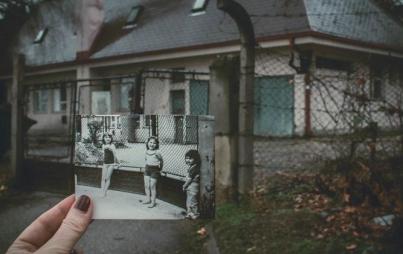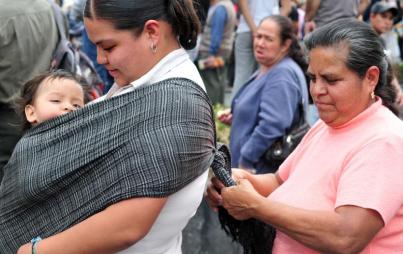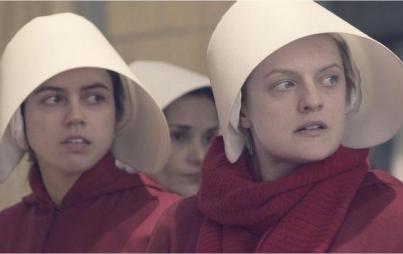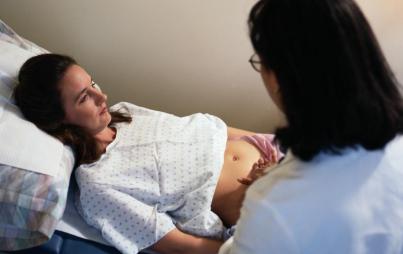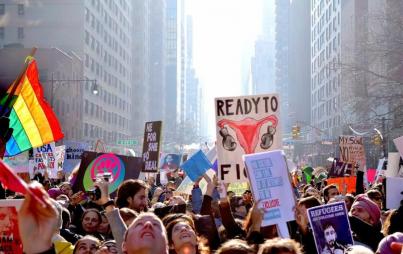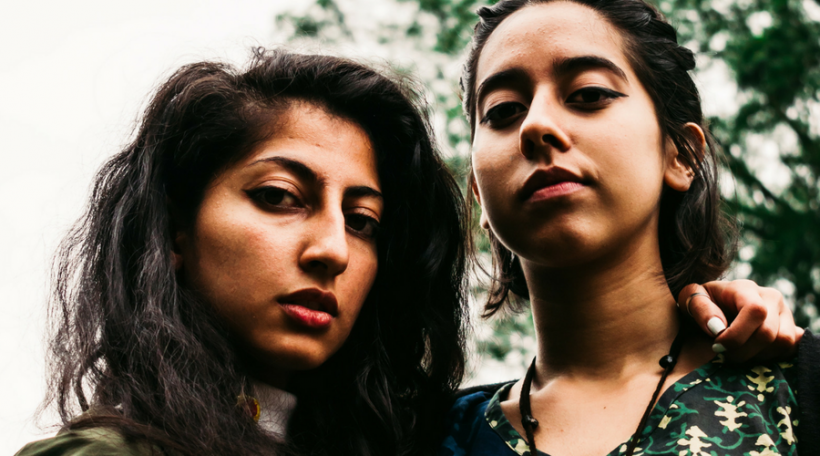
Our role, as an abortion doula, is to help make the experience one that is filled with compassion and kindness.
Doulas, or companions who provide information and resources throughout pregnancy and coach and support women during childbirth, are gaining popularity within some communities. One study found that between 2006 and 2013, the number of women reporting the use of doulas had doubled. Recent research has found that the presence of doulas at live births is associated with better health outcomes for both baby and mother, including lower C-section rates and a lower likelihood of premature births.
Given the abysmal rates of maternal mortality in the United States today, innovative solutions like doula care are most welcome.
But despite the clear benefits of doulas, there are two problems with the way doula care works in this country: 1) Doulas are often very expensive, making them a privilege often only available to the white middle and upper class and 2) Most doulas only assist live births and ignore other pregnancy outcomes (including miscarriage, stillbirth, and abortion) where women are just as likely, if not more, in need of need support.
One organization works toward filling these gaps in the doula care model by offering free support from “full-spectrum” doulas, meaning doulas who care for pregnant people regardless of the pregnancy outcome. Founded in 2007, The Doula Project aims to create a society in which all pregnant people have access to the care and support they need during their pregnancies and the ability to make healthy decisions for themselves, whether they face birth, miscarriage, stillbirth, fetal anomaly, or abortion. And all of this essential work is provided to clients free of charge to ensure all people, regardless of income or financial circumstances, can access the care and support they need.
One of the co-founders of The Doula Project, Mary Mahoney, is a full-spectrum doula herself who gave us her insights about the importance of this work as well as what it’s like to be an abortion doula. Our sit-down with Mary is transcribed below.
Thanks for chatting today, Mary. Could you start by talking a bit about what inspired you to become a full-spectrum doula and start The Doula Project?
The Doula Project started in 2007, which was a really interesting time to be involved in reproductive health work. A shift was happening. The reproductive justice framework, which advocated for the right to give birth and parent as well as the right to have an abortion, was gaining a lot of ground. It was engaging people who had been left out of the traditional repro rights movement: women of color, young people, LGBTQ folks.
It was also around this time that organizations were attempting to bring birth workers into the same rooms as people advocating for abortion rights, which felt pretty bold. Because some of the injustices happening to birthing women were starting to be exposed — increases in inductions and epidurals, medically unnecessary C-sections — we were hearing a lot about how much they deserved a loving and compassionate experience and how doulas were supporting this effort. Meanwhile, abortion remained strictly in the “access on demand, with no apologies” zone. There wasn’t much discussion about what the abortion experience was like, just that women were able to have one.
You Might Also Like: How To Talk To Kids About Abortion
[Fellow co-founders] Lauren Mitchell, Miriam Perez, and I were all working in reproductive justice organizations at the time. I’d grown up in Southern Indiana with very little knowledge of reproductive rights, let alone justice, and was coming into my evolution as an activist. We all wanted to fill this gap we saw in abortion care. So we formed the “Abortion Doula Project.” Within a year we had the first formal abortion doula program in the country operating out of a public hospital in New York City. We’ve now changed our name to The Doula Project and have supported tens of thousands of clients over the last decade using our full-spectrum model of care: we serve all pregnancy outcomes from birth to abortion to pregnancy loss and adoption.
How does someone become an abortion doula? Does it require training?
I had gone through a very uninspired birth doula training and knew quite a bit about abortion, theoretically, through other jobs in the pro-choice space. But when we started The Doula Project we had to jump straight into the clinic — attending 1st and 2nd-trimester abortions, laminaria insertions, stillbirth inductions, procedures for miscarriage management — because we didn’t know anyone who had ever done this before. We learned how to be abortion doulas those first few months from the nurses, counselors, and doctors we worked with.
Once we felt like we had a broad enough knowledge base, we organized what, I believe, was the very first formal abortion doula training in the country. We invited seasoned birth doulas, abortion counselors, and reproductive justice leaders to be our teachers. They led us through workshops on pain management, diversity awareness, and professionalism in medical settings. Lauren and I spoke about our personal experiences with clients — the things that ultimately become second nature but are hard or awkward in the beginning — like, knowing where to stand in a procedure room or being able to tell your client what to expect during a procedure. The Doula Project has now trained hundreds of people locally and nationally and has refined that original curriculum to meet the evolving needs of our doulas and clients.
What exactly does an abortion doula do?
Our role is to help make the experience one that is filled with compassion and kindness. We do this in multiple ways: through grounding touch or helping a client wipe away a tear; through listening to a client talk about why this is hard or why they need an abortion. Doulas also provide a way for pregnant people to self-advocate in a medical setting by giving them information and guiding them through the process. Because we are able to stand with the client throughout the procedure, we often serve as translators between the doctor at the foot of the table and the client at the head. I always say that doulas help create “a community of care” and fill in the spaces that might otherwise be occupied by loneliness or anxiety or fear.
How do you deal with the range of emotions your clients might experience?
Back when we started The Doula Project, I was always surprised by the empowering language many repro rights groups used to describe people’s experiences of abortion. Likewise, anti-abortion groups would frame abortion as an act of shame and regret. It felt like there was no room for grey space. And a lot of what we see is that grey space. My co-founder, Lauren, describes it as a bell-curve: there are people who feel empowered, and there are people who feel devastated, but most people fall someone in the middle. Relief mixed with grief; gratitude that they were able to get an abortion but unhappy about the fact that they needed it in the first place. Doulas are there for all of it.
My feelings tend to mirror my clients. If my client feels sad, I will meet her there. If my client feels okay about her decision but is worried about the pain, that’s where I’ll focus my support.
Some clients want to be distracted during their abortions, so we talk about our kids or a funny movie we saw. Doulas have to be constantly assessing and shifting to meet the needs of their clients because everyone needs something slightly different.
How do you see the work of abortion doulas fitting in with the broader reproductive rights movement?
Full-spectrum support is really grounded in activism. It's this amazing bridging of direct service with social change, something that is pretty rare. Normally birth and abortion aren't talked about in the same room. Through the work we do, we get to make a statement that these reproductive health experiences should not be isolated from one another. I think our model, in addition to the repro justice framework, has helped inform the shift that repro rights groups are making toward more inclusive and holistic approaches to supporting pregnant people.




